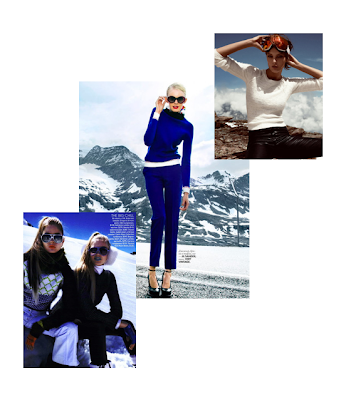

When most people hear the word “sunburn,” they automatically think of red shoulders or burnt noses. However, many people forget to protect one of the most sensitive areas of the body—the eyes.
Sunburned Eyes: A Real Risk
Anderson Cooper, journalist for CBS 60 Minutes, recently reported an incident of a sunburned eye while on location in Portugal. He suffered temporary blindness for 36 hours after waking up in the middle of the night with a burning sensation in his eyes. This is a very common problem that is often overlooked—especially during the winter months.
Winter Sun Protection for the Eyes
UV rays don’t just affect you at the beach. In fact, sunburn of the eyes can be more prevalent in the winter, as ultraviolet rays reflect off snow and water, which can intensify their effects. UV rays also reflect off pavement and grass, but the intensity of reflection off snow and water can be more harmful.
It’s essential to include winter sun protection in your routine—especially eye protection. Patients should be encouraged to wear polarized sunglasses or contacts with polarized lenses that block harmful UV rays. A wide-brimmed hat can also provide an additional layer of protection by shielding the eyes from direct sunlight.
How to Choose the Right Sunglasses
The best sunglasses should block 75-90% of visible light and approximately 95% of UVB radiation and 99% of UVA radiation. This provides effective protection from sunburn and long-term damage to the eyes.
Signs of a Sunburned Eye
If your eyes become sunburned, symptoms will include:
-
Painful irritation
-
Redness
-
Blurred vision
-
A gritty sand-like feeling
-
Temporary loss of vision
Poor eye protection from the sun can lead to more serious conditions later, including cataracts, benign growths on the eyes, and even skin cancer of the eyelids.
What to Do in Case of Sunburned Eyes
If you or your patients experience sunburned eyes, it’s important to:
-
Stay out of the sun as much as possible.
-
Use lubricating eye drops to ease irritation.
-
Symptoms should improve within a few days. However, if there is blurred vision or a loss of vision, cover the eye immediately and seek evaluation by an ophthalmologist as soon as possible.
Conclusion: Winter Eye Protection is Essential
In summary, winter eye protection is just as important as protecting your skin from UV damage. Polarized sunglasses, polarized contacts, and wide-brimmed hats can prevent eye sunburn and protect against future visual impacts caused by long-term UV exposure.


